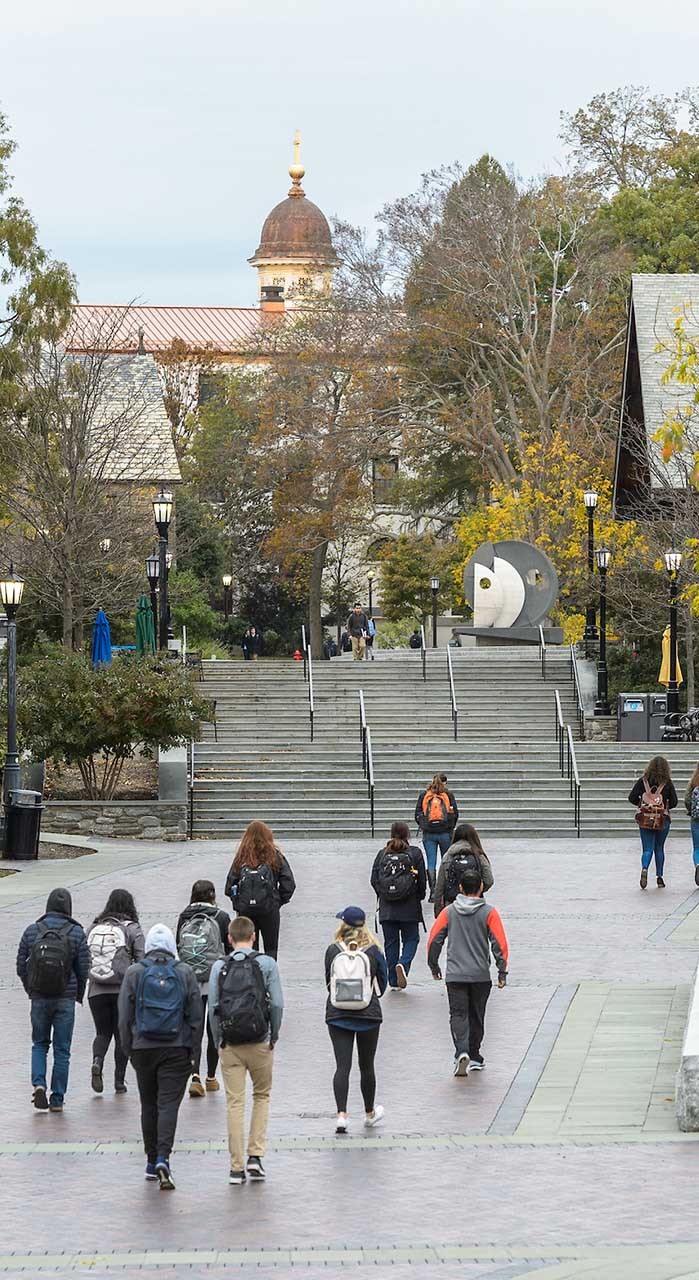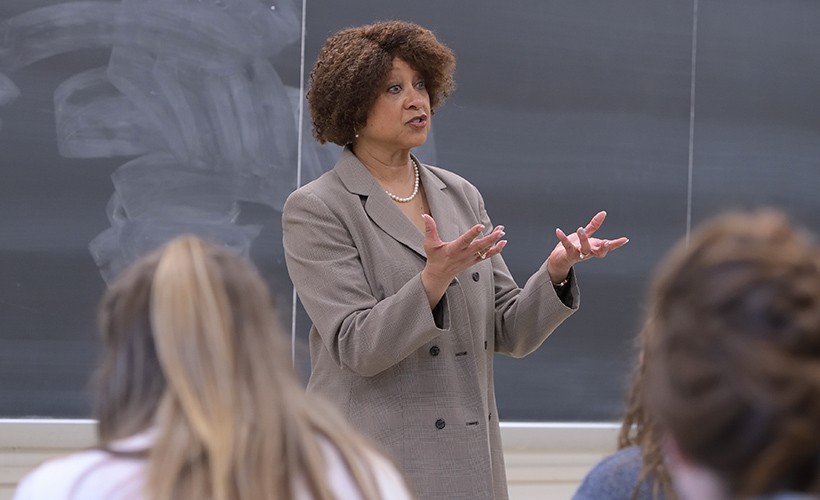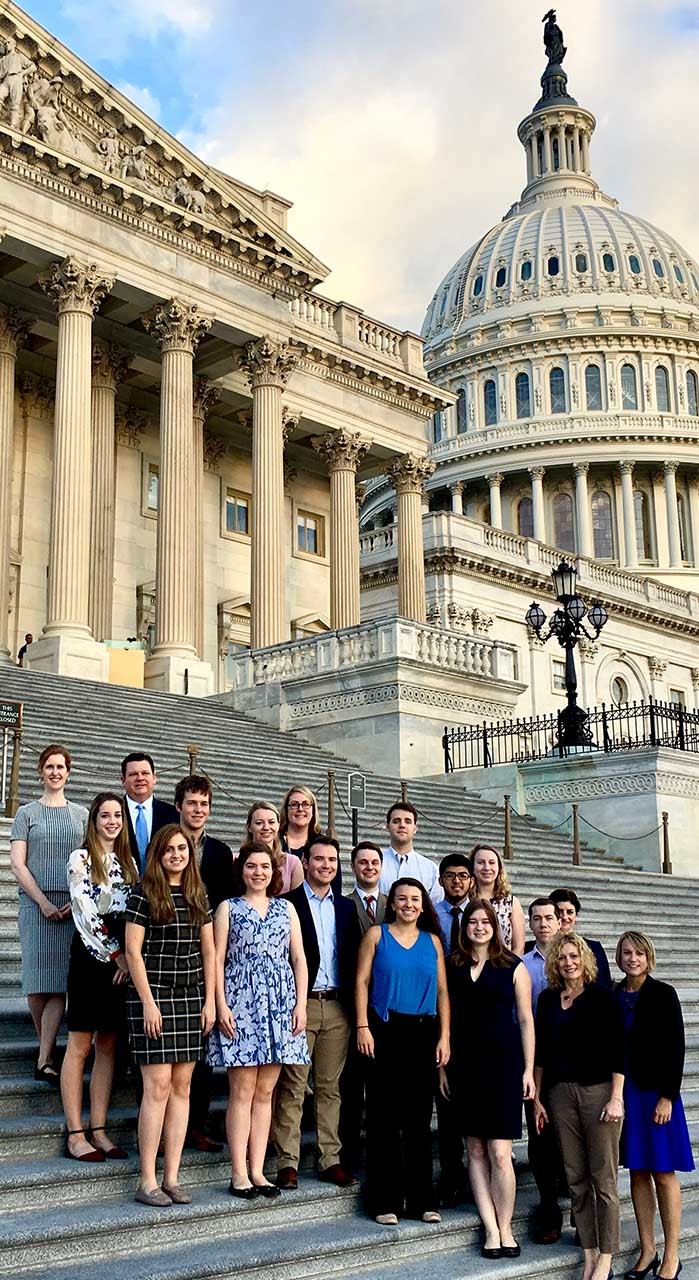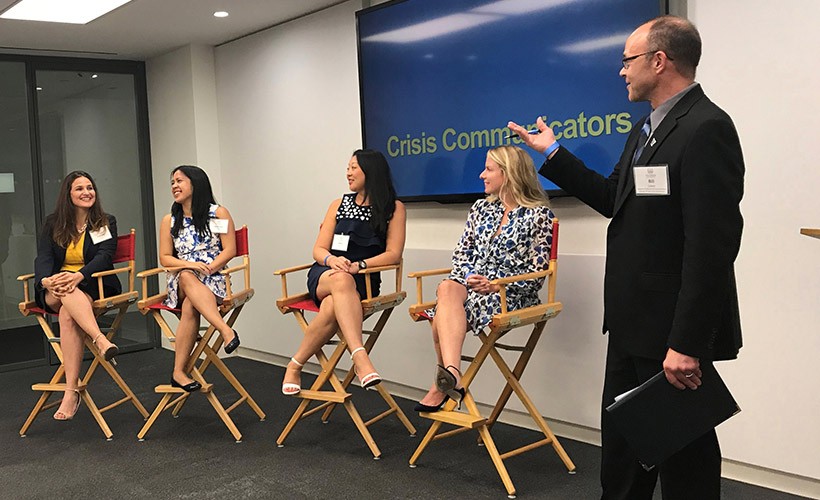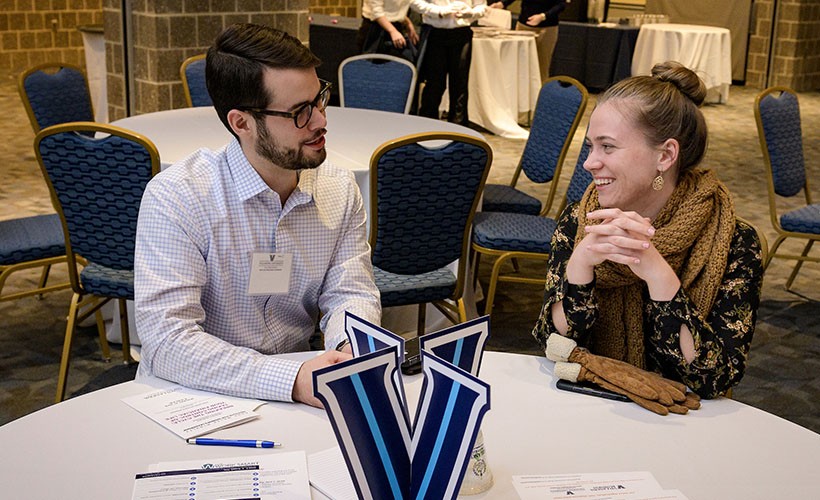ALUMNI NEWS

Nancy M. Lane '87
During my junior year at Villanova my life changed when Dr. James McKenna, a professor of criminal justice, took our small class to Graterford Prison to meet an inmate on death row.
I remember being terrified. The experience changed my opinion on the death penalty and opened my eyes on the need for prison reform. Dr. McKenna was a tireless advocate who started a program for inmates and guards to earn college credits from Villanova. The Villanova Program at SCI-Phoenix still exists today for inmates at SCI-Phoenix.
When I graduated in 1987, I struggled to find a job in the criminal justice field and had no money to go to law school. I entered the business world, working in the local media industry, and eventually became a publisher of daily newspapers in Pennsylvania, Connecticut, and Missouri. As publisher, I was also responsible for the newsroom, a new area of responsibility for me.
I quickly learned that journalists are the watchdogs of our society. They uncover corruption, social injustices, and wrongdoing. I became obsessed with the importance of a free press and the need for accountability journalism.
I left corporate America in 2000 to become the CEO of Local Media Association, a nonprofit trade organization representing a few thousand local TV stations, newspapers, digital sites, radio stations, and more. It’s a position I still hold. Most of my time has been spent on the business side, helping local media companies transform to a digital future. But in 2020 things changed, and my sociology degree kicked into full gear.
After the murder of George Floyd, a group of legendary Black publishers asked for our help to launch a national site that would focus on solutions to racial inequities in America. It was another game changing moment in my life. We launched Word In Black in late 2020, incubated inside our foundation. From them, I learned about Emmett Till, Juneteenth, and the Tulsa Race Massacre and wondered how I had not learned about this history.
Our 10 reporters cover a wide range of topics. This past summer we covered stories about the prison system, and inmates who died from excessive heat in facilities without air conditioning. Dr. McKenna, who served three terms as president of the Pennsylvania Prison Society (an inmate advocate group), surely would have been disgusted to read these reports (he died in 2005).
Inspired by the impact of Word In Black, we have since launched News is Out with six of the nation’s leading LBGTQ+ publishers and the Covering Climate Collaborative with more than 40 of the nation’s leading newspapers, TV stations, and universities.
It took most of my career to circle back to social injustices and my roots as a Sociology major at Villanova University. My degree has always served me well, at every step in my career. It’s been a big part of my success and I’m grateful to the whole faculty for believing in me and sending me out to conquer the world and confront injustice when I see it. I do believe Dr. McKenna would be proud.
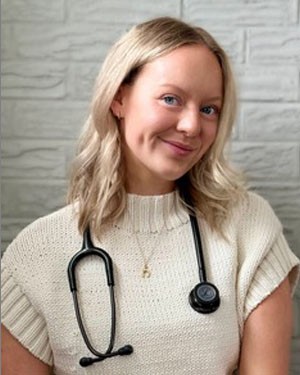
Madison Moser '22
My Sociology degree from Villanova has significantly shaped my approach to nursing, especially as I complete my capstone at Denver Health, a hospital that serves a disproportionately high number of diverse and often underserved populations. Studying sociology has equipped me with a critical understanding of social determinants of health, cultural competence, and the ability to navigate complex social structures – skills that are essential in providing patient centered care.
One of the most valuable insights from my sociology education is an in-depth understanding of how poverty, education, housing, and access to healthcare all play a role in overall health. In my nursing practice, I get to see firsthand how these factors impact patient outcomes. Many patients at Denver Health face barriers to care, such as homelessness, substance use, mental health struggles, are uninsured, or have language barriers, which complicate their ability to understand or adhere to treatment plans. My sociology education allows me to consider these contextual factors when caring for patients, ensuring that my decisions are both medically and socially sound.
Some of the classes I took, such as, The Sociology of Health, Medicine & Society, and The Sociology of Mental Health & Illness taught by Dr. Meredith Bergey, have trained me to think critically about systems of power and inequality. These classes heightened my cultural competence, which has proven to be especially helpful when caring for immigrant or minority patients who have experienced healthcare discrimination. It was in these classes that I was introduced to the history of healthcare, how individuals were historically treated, and why it is important to stay current in evidence-based practice. My sociology degree has encouraged me to think about how larger societal structures impact individual health, which has translated into being a stronger advocate for my patients.
The vulnerable patient population I work with presents unique challenges, but my time studying sociology at Villanova has prepared me to meet these challenges head-on. The insights I have gained have allowed me to approach nursing with a holistic mindset. By integrating this knowledge into my clinical practice, I am better equipped to provide equitable and empathetic care to diverse patient populations. As I move forward in my nursing career, I am confident that my sociology background will continue to enhance my ability to advocate for my patients and address the broader social factors that impact their health outcomes.

